Albanese and Voice supporters hit back as Liberal MPs break ranks on Voice referendum
Anthony Albanese and the advocates for the Voice have hit back as Liberal MPs start breaking ranks after the party finally revealed its position on the referendum.
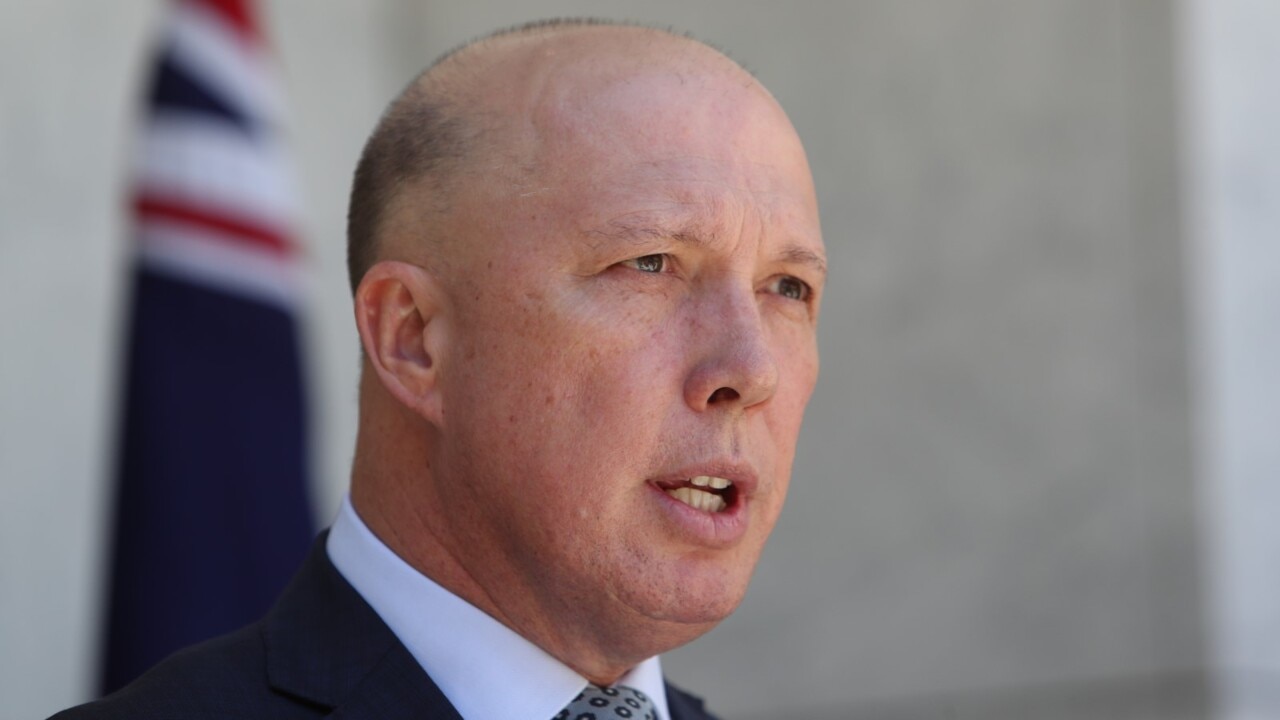
Indigenous leaders for the Voice say they will not be deterred by the Liberal Party’s decision to formally oppose constitutionally enshrining the advisory body, endangering the success of this year’s referendum.
The Liberal party room voted on Wednesday to reject the government’s proposed model for the Voice in favour of establishing local and regional Voices which would be legislated but not embedded in the Constitution.
Pat Anderson from the Uluru Dialogue advocacy group accused the Liberal Party of voting to continue the “domination” of Canberra politicians and Canberra bureaucrats in the lives of grassroots communities.
“It seeks to entrench the status quo which is failing our people,” Ms Anderson said.
“We will not be deterred. Our focus remains on educating the Australian people about how important this reform will be to the lives of First Nations peoples.”
Anthony Albanese says he knows Liberal frontbenchers who want to support a constitutionally enshrined Voice as he took a swing at the party for deciding to turn its back on it after months after pushing back on it.
Key moderates Andrew Bragg and Bridget Archer were quick to break ranks to signal their support for the Voice after their party room agreed to allow backbenchers a conscience vote on the matter.
Ms Archer almost immediately confirmed she would defy the party line and campaign for a “yes” vote and said the Liberals’ verdict on the Voice was the latest in a series of decisions which had tested her faith in the party.
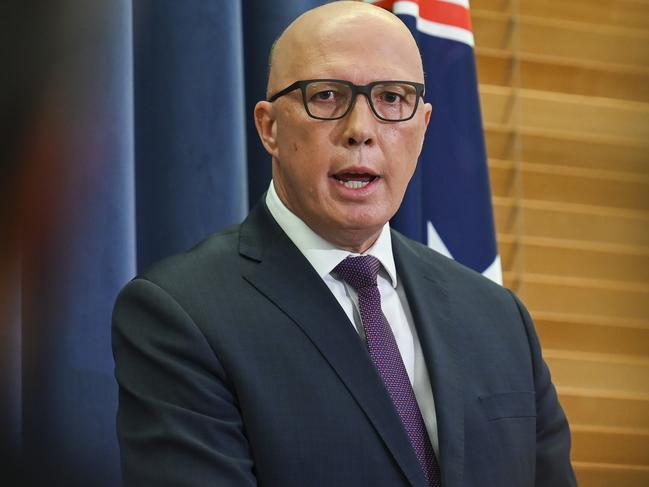
The outspoken Tasmanian backbencher, who has crossed the floor to vote with Labor in the past, told the ABC after the party room meeting that she thought the Voice was worth fighting for and there was a “moral imperative” to back the proposal.
Senator Bragg released a statement saying he maintained an open mind as a long-term supporter of the Voice “concept”, adding he was committed to achieving the “best” possible constitutional amendment to both empower communities and protect “institutional framework”.
“The process to date has been poor, but that is not a good enough reason to oppose the referendum in my opinion,” Senator Bragg said.
Senator Bragg and Ms Archer will be allowed to support the referendum because neither of them sits on the Opposition frontbench.
But Liberals in the shadow cabinet will have to oppose the Voice, meaning any MPs who support the proposal will need to fall in line behind the Coalition’s position or resign from their frontbench positions.
Speaking after the Liberals’ party room meeting on Wednesday, the Prime Minister said he was aware of shadow ministers who would like to cross the floor to support the government’s proposal.
“But it’s a matter for them,” Mr Albanese told ABC Radio Sydney.
Mr Albanese said he was disappointed but not surprised by the Liberals’ decision and took aim at Peter Dutton’s suggestion the party would support symbolic constitutional recognition for Indigenous people without the element of the Voice.
“It appears some people don’t want a Voice; they’d rather have a whisper,” Mr Albanese said.
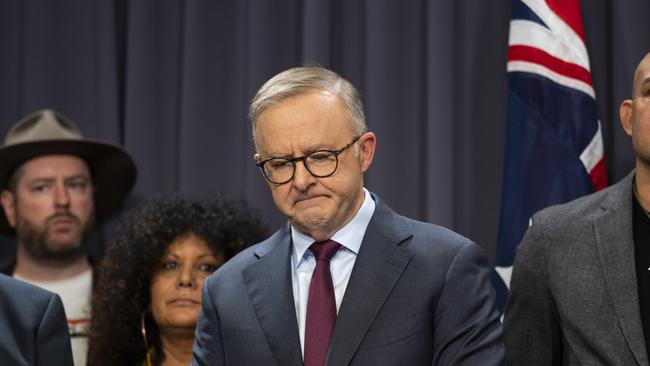
Later on Wednesday, Mr Albanese told ABC’s Hack radio program he had met with Mr Dutton “in good faith” on seven occasions to discuss the Voice.
He said the Coalition had done nothing in the eight months it had had to propose changes to the draft constitutional amendment he initially proposed at Garma Festival in Arnhem Land last July.
“No Liberal or National Party leaders came forward with any alternatives or any suggestions, in spite of the fact that I made it very clear it was just draft wording,” he said.
The Opposition Leader confirmed after the Liberals’ party room meeting he would actively campaign against the Voice before the referendum on enshrining the advisory body in the Constitution is held sometime between October and December.
“I don’t think this is in our country’s best interests,” Mr Dutton said.
“I have spent literally months, like many Australians, trying to understand what it is the Prime Minister is proposing. We cannot get the basic detail out of them. We think it is deliberate. We are waiting, waiting for advice.”
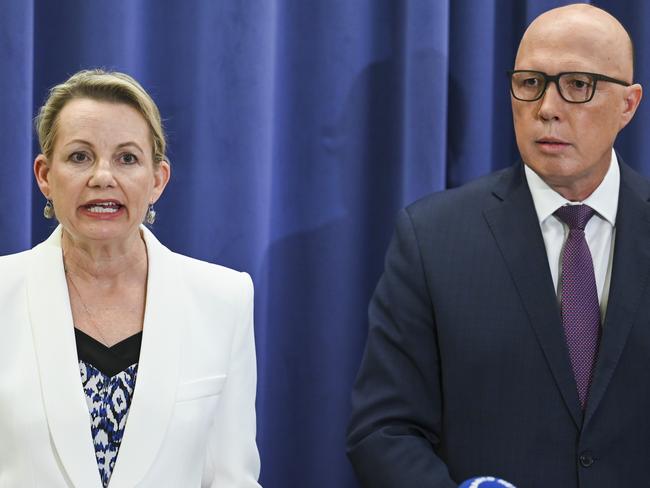
The Albanese government has maintained that amending the Constitution is the form of recognition Aboriginal and Torres Strait Islander leaders asked for in the 2017 Uluru Statement from the Heart, saying the finer details will be ironed out through the usual parliamentary processes when the Voice is legislated.
Mr Albanese revealed a fortnight ago how the Constitution would most likely be changed to embed the Voice – which would be allowed to make representations to cabinet ministers who form the executive government as well as the parliament of the day.
Flanked by Indigenous leaders who sat on the government’s referendum working group, Mr Albanese had tears in his eyes as he revealed the proposed constitutional amendment and referendum question in an emotional press conference in Canberra.
Australians will be asked: “A Proposed Law: to alter the constitution to recognise the First Peoples of Australia by establishing an Aboriginal and Torres Strait Islander Voice. Do you approve this proposed alteration?”
Parliament will finalise the wording of the question and the proposed constitutional change when it votes on the Constitution Alteration Bill no later than June, with a bipartisan committee reviewing the legislation due to report back by mid-May.
Mr Dutton characterised the government’s proposal as “the Prime Minister’s divisive Voice to Canberra”, claiming it would be steered by Indigenous academics and do little to close the gap or improve the lives of Aboriginal and Torres Strait Islander people.
The federal National Party – the junior Coalition partner – announced last year it would oppose the Voice.
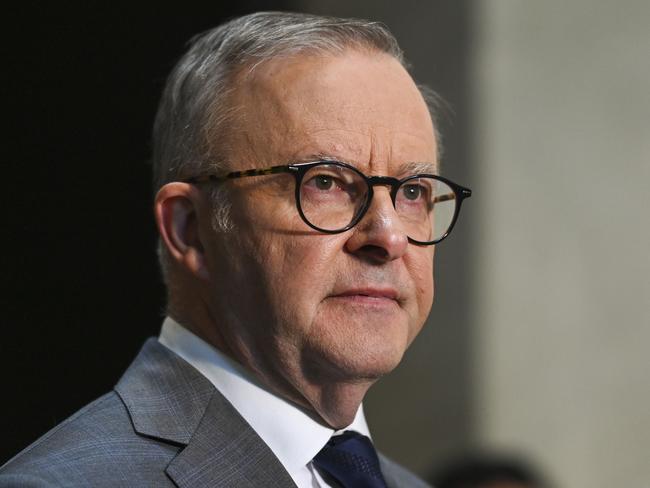
The Liberals’ decision to reject the Voice drew praise from Nationals leader David Littleproud, who told reporters in Toowoomba he wasn’t surprised.
“Obviously, they have strong views on both sides, but they’ve been able to get to a juncture where in principle they cannot support the proposal that’s been put forward,” he said.
“The fact that it took the Liberal Party longer to get there (than us) is something we respect.”
But Greens leader Adam Bandt lashed the Liberals as a “small racist rump sliding into irrelevance” in the wake of their announcement on Wednesday.
“It’s incredible that the Liberals could have looked at the results in NSW and Aston and decided that the solution was a race-based culture war,” he said
“They’ve got nothing to offer this country.”
The Liberals’ decision on Wednesday comes after fresh polling found a majority of Australians in a majority of states supported the government’s Voice proposal.
The Newspoll, conducted for The Australian newspaper, suggests 54 per cent of all Australian voters support the proposal which would constitutionally recognise Indigenous Australians and enshrine an Aboriginal and Torres Strait Islander Voice to parliament.
According to the poll, 38 per cent of Australians are opposed. Queensland is the only state which does not have majority support, with 49 per cent of respondents backing the Voice and 43 per cent against.
Additional reporting: Ellen Ransley, Courtney Gould



